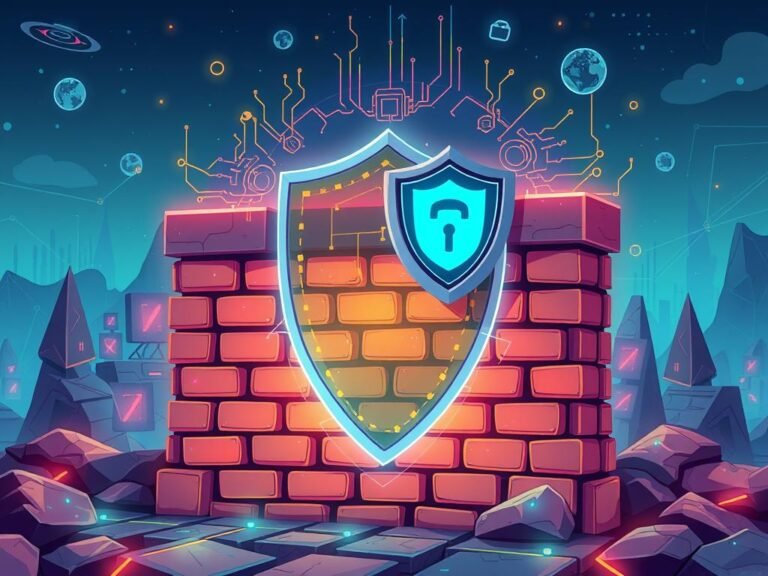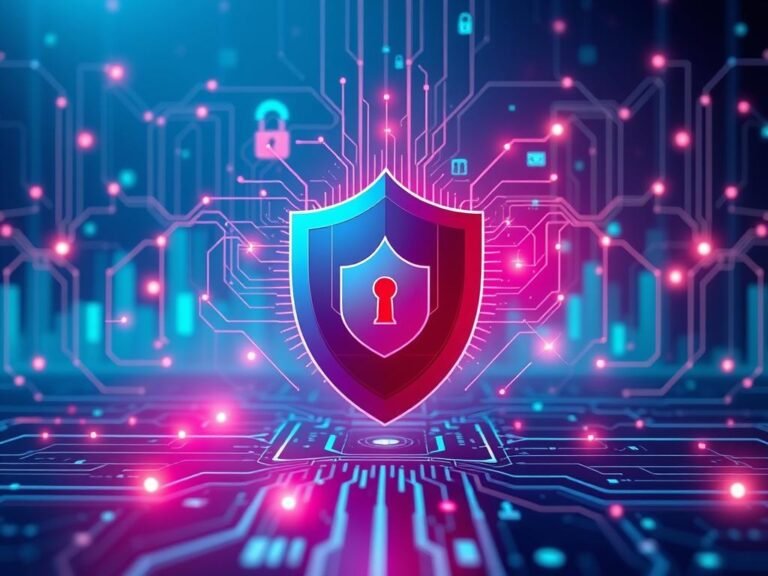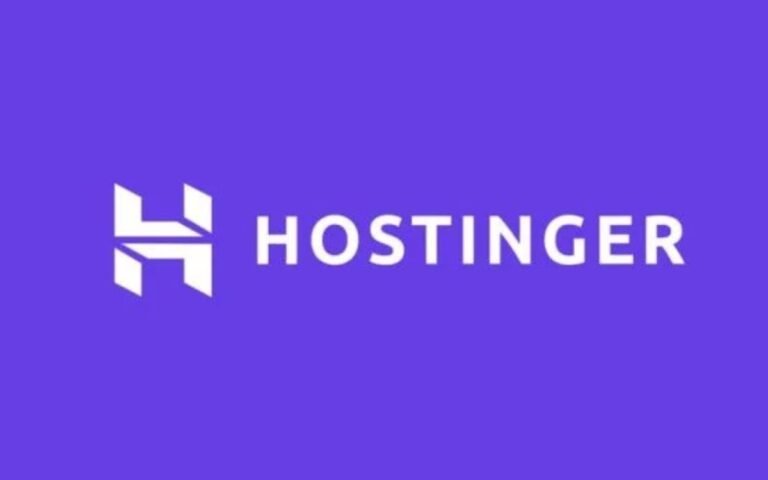Browse the Internet Safely: 7 Essential Tips for 2024

The Internet has become an integral part of our daily lives, providing convenience and accessibility. However, it also brings about cyber threats and online security concerns. To ensure your internet safety and protect yourself from cybersecurity risks, it’s crucial to follow these 7 essential tips for 2024.
Share Personal Information Wisely
When it comes to sharing personal information online, it’s essential to exercise caution, especially on public forums and social media platforms. While it can be tempting to share details of your life with others, oversharing can make you vulnerable to various online threats, such as cyberbullying, online vulnerability, and account breach.
Sharing too much personal information on public platforms can have severe consequences. It can expose you to cyberbullying and make you an easy target for those seeking to harm or harass you online. In addition, sharing sensitive details like your full name, address, or phone number can increase the risk of an account breach.
Remember, hackers are always on the lookout for personal information that can be exploited. They can use the information you share to launch phishing attacks or breach your login security. By gaining access to your accounts, they can potentially cause significant harm, such as stealing your identity or financial information.
Before sharing any personal information online, ask yourself if it is necessary or if there are potential risks involved. Consider the following tips to help you share personal information more wisely:
Think Twice Before Sharing Confidential Information
Confidential information such as your social security number, bank account details, or personal identification should never be shared on public platforms. Be mindful of what you post and think twice before sharing such sensitive information online.
Set Strict Privacy Settings on Social Media Platforms
Take advantage of the privacy settings available on social media platforms. Adjusting your settings can help control who can see your posts, photos, and personal information. Regularly review and update these settings to ensure you’re comfortable with the level of privacy you have set.
Limit the Audience for Personal Posts
Consider sharing personal updates and posts only with trusted friends and family members. Use features such as “Close Friends” on social media platforms to restrict access to sensitive information.
Avoid Accepting Friend Requests from Strangers
Be cautious about accepting friend requests or connections from individuals you don’t know personally. Online vulnerability increases when you grant access to your personal details to unknown entities.
Be Mindful of the Information Shared in Photos
Photos can provide valuable insights into your life. Avoid sharing images that reveal excessive personal information, such as the layout of your home or important documents that can be used for identity theft.
By adopting these practices, you can protect yourself from potential online vulnerability and reduce the risk of cyberbullying or account breach. Always prioritize your privacy and think twice before sharing any personal information online.
Beware of Malware and Suspicious Downloads
When browsing the internet, it’s important to be cautious about the software and files you download. Avoid accessing unlicensed software or pirated programs, as they pose a significant risk to your online security. These unauthorized downloads are not only illegal but also often contain malware that can compromise your computer and personal information.
Blockify: Geração HTML, Simplificada.
"Blockify: Geração HTML, Simplificada. Crie anúncios e banners otimizados para afiliados e SEO em minutos, transformando suas ideias em código limpo e responsivo sem complicação."
Saiba MaisMalware attacks are a common threat, and they can take various forms, including viruses, Trojan horses, and spyware. They can infiltrate your system through seemingly innocent downloads, putting your privacy and online safety at risk. Therefore, it’s crucial to be vigilant and only download software and files from reputable and trustworthy sources.
Remember:
- Avoid unlicensed software and pirated programs: Stick to authorized sources and purchase software from legitimate vendors to ensure your downloads are free from malware.
- Be cautious of suspicious attachments: Emails with suspicious attachments may contain malware or be a part of phishing scams. Don’t open attachments from unknown senders and be cautious even with emails from familiar sources if they seem unusual.
- Run regular virus scans: If you suspect that your computer may be infected with privacy-breaching malware, run a reliable antivirus program to detect and remove any threats.
Remember that protecting yourself from malware and suspicious downloads is an essential part of maintaining your online security. Stay vigilant and prioritize software and file sources that are reputable and authorized.
Use Public Wi-Fi Networks with Caution
Public Wi-Fi networks offer convenience for staying connected on the go, but they also come with security risks. Unlike private networks, public Wi-Fi networks are often less secure and can be easily exploited by hackers. It’s important to exercise caution when using public Wi-Fi to protect your network security and sensitive data.
Man-in-the-Middle attack: One of the common risks associated with public Wi-Fi networks is the Man-in-the-Middle attack. In this attack, an attacker intercepts the communication between a user and the Wi-Fi network, potentially gaining access to personal information such as passwords, credit card details, or other sensitive data.
To safeguard your data and protect against such attacks, consider using a Virtual Private Network (VPN). A VPN encrypts your internet connection, making it difficult for hackers to intercept your data. By routing your internet traffic through a secure server, a VPN creates a secure tunnel, protecting your information from potential eavesdroppers on the public Wi-Fi network.
When using a VPN, your data is encrypted, ensuring that even if someone manages to intercept it, they won’t be able to decipher the information. VPNs are especially useful when accessing sensitive information like online banking or conducting business transactions while connected to a public Wi-Fi network.
It’s important to note that not all VPNs are created equal. Choose a trusted and reliable VPN service provider that uses strong encryption protocols, has a strict no-logs policy, and offers a user-friendly interface for easy setup and usability.
Public Wi-Fi networks can be a breeding ground for hackers. Protect your data and maintain your network security by using a VPN when connected to public Wi-Fi.
By using a VPN, you can browse the internet securely, knowing that your data is protected from potential threats. It adds an extra layer of security to your online activities, giving you peace of mind while using public Wi-Fi networks.
Remember, it’s always advisable to avoid sensitive activities like online banking or accessing sensitive accounts when connected to public Wi-Fi networks. However, if you must use public Wi-Fi, be sure to take precautions and use a VPN for enhanced network security.
Pros and Cons of Using Public Wi-Fi Networks
| Pros | Cons |
|---|---|
| Convenient access to the internet | Less secure than private networks |
| Free access in many locations | Increased risk of Man-in-the-Middle attacks |
| Allows you to stay connected while traveling | Potential exposure to phishing scams and malware |
| Useful for light browsing and non-sensitive activities | Limited control over network security settings |

Be Aware of Phishing Scams
Phishing attacks have become increasingly common in the world of online fraud. Cybercriminals employ various tactics to deceive unsuspecting individuals into divulging sensitive information or downloading malware. They often utilize fraudulent emails, texts, or social media messages, as well as fake websites, to achieve their malicious goals. It is crucial to stay vigilant and protect yourself against these deceptive schemes.
When it comes to phishing attacks, fraudulent emails are a common method used by scammers. These emails often appear authentic, mimicking legitimate communication from reputable organizations. However, they are designed to trick recipients into providing personal or financial information. It is important to exercise caution when encountering suspicious emails and refrain from sharing any sensitive details in response to unsolicited communication.
Fraudulent websites are another tool employed by cybercriminals to carry out phishing scams. These websites are crafted to mimic the appearance of legitimate platforms, such as banking websites or online shopping portals. They often trick users into entering their personal information, which is then used for nefarious purposes. Be wary of any website that requests personal details, especially if it seems suspicious or unfamiliar. Always verify the legitimacy of a website before sharing any sensitive data.
Remember, legitimate communication from reputable organizations will never ask you to provide personal information through email or unfamiliar websites. If you receive an email or visit a website that seems suspicious, do not hesitate to contact the company directly to verify its authenticity.
Protecting Your Personal Information
Protecting your personal information is crucial in preventing falling victim to phishing scams. Here are a few essential tips to keep in mind:
- Be cautious of unsolicited communication: Avoid sharing personal information in response to unsolicited emails, texts, or social media messages.
- Verify the source: Double-check the legitimacy of any communication or website before providing sensitive data.
- Use secure websites: Ensure that websites are secure by looking for the padlock symbol in the address bar and verifying that the URL begins with “https”.
- Keep software updated: Regularly update your operating system and applications to protect against vulnerabilities that scammers may exploit.
- Enable two-factor authentication: Opt for two-factor authentication whenever possible to add an extra layer of security to your accounts.
- Educate yourself: Stay informed about the latest phishing techniques and common scams to recognize and avoid them.
By following these precautions and remaining vigilant, you can significantly reduce the risk of falling victim to phishing attacks and protect your personal information from falling into the wrong hands.
Remember, when it comes to phishing scams, awareness and caution are your most powerful tools. Stay informed, stay alert, and keep your personal information safe.
Secure Your Internet Connection
Enhance the safety of your Internet connection by using a firewall to control incoming traffic and protect against unauthorized access. A firewall acts as a barrier between your device and the Internet, monitoring and filtering network traffic to prevent malicious activities.
Consider utilizing a VPN (virtual private network) to shield your online activity from eavesdroppers and hackers. A VPN encrypts your Internet communications, making it difficult for anyone to intercept or decipher your data. Whether you’re browsing the web, accessing public Wi-Fi networks, or conducting online transactions, a VPN adds an extra layer of security to your online experience.
Installing a reliable Internet security tool like Malwarebytes Browser Guard is another essential step to ensure secure browsing. With its advanced threat detection capabilities, Malwarebytes Browser Guard helps safeguard your online activities by blocking malicious websites, phishing attempts, and other online threats.
Additionally, it’s crucial to secure your router settings. Change the default name and password of your router to prevent unauthorized access to your network. Default login credentials are often widely known among hackers, making it easier for them to gain access to your router and potentially compromise your entire home network. Select the highest security encryption protocol available for your Wi-Fi network, such as WPA2 or WPA3, to protect your wireless connections.
Remember, safeguarding your Internet connection is an integral part of maintaining online security. By implementing these measures, you can significantly reduce the risk of unauthorized access, data breaches, and other cyber threats.

Create Strong and Unique Passwords
When it comes to password security, strong and unique passwords are essential for protecting your online accounts from unauthorized access. It is important to create passwords that are difficult for others to guess, while also ensuring that each password is unique to prevent one compromised account from compromising multiple accounts.
Follow these guidelines to create strong and secure passwords:
- Length: Make sure your password is at least 12 characters long. Longer passwords are generally more secure than shorter ones, as they are harder to guess or crack.
- Complexity: Use a combination of uppercase letters, lowercase letters, numbers, and symbols in your password. This makes it more difficult for hackers to guess or crack your password using automated tools.
- Avoid password patterns: Avoid using predictable patterns, such as common words, sequential numbers, or keyboard patterns. These patterns are easily guessable and increase the vulnerability of your password.
- Regularly update your passwords: It is recommended to update your passwords regularly, especially if you suspect any compromise or have changed devices. Regularly updating your passwords adds an extra layer of security to your accounts.
Consider using password management software to securely store and manage your passwords. Password managers generate strong and unique passwords for each of your accounts, eliminating the need to remember multiple complex passwords. They also provide the convenience of autofilling passwords, making it easier and more secure to log in to your accounts.
Why Strong Passwords Matter
“A strong password is like a lock on your door. It helps keep your personal information safe and secure from unauthorized access.” – Cybersecurity Expert
By creating strong and unique passwords, you significantly reduce the risk of your online accounts being compromised. Weak passwords or reused passwords make it easier for hackers to gain access to your accounts, potentially leading to identity theft, financial loss, and other harmful consequences.
Remember, a little effort in creating strong and unique passwords goes a long way in enhancing your password security and protecting your digital identity.
Common Password Mistakes to Avoid
| Password Mistake | Why It’s a Risk |
|---|---|
| Using common words or phrases (e.g., “password” or “123456”) | Easy to guess, common passwords found in dictionaries or hacker databases |
| Using personal information (e.g., name, birthdate, or address) | Guessable information and easily targeted through social engineering |
| Reusing passwords across multiple accounts | One compromised account could lead to multiple compromised accounts |
| Sharing passwords with others | Loss of control, increased chances of unauthorized access |
In conclusion, strong and unique passwords are crucial for maintaining password security. By following best practices in password creation and staying vigilant about updating your passwords, you can significantly reduce the risk of your accounts being compromised. Remember, your password is the first line of defense in protecting your online presence.
Conclusion
Protecting your digital life is essential in today’s digital landscape. By implementing these cybersecurity tips, you can ensure internet safety and safeguard your online presence. Remember to share personal information wisely, being cautious of the potential vulnerabilities that come with oversharing. Stay vigilant against suspicious downloads and avoid unlicensed software to prevent malware attacks. When using public Wi-Fi networks, exercise caution and consider using a VPN for added security.
Phishing scams are prevalent, so always be aware of fraudulent emails and websites. Never share personal or financial information unless you can verify the legitimacy of the communication. Secure your internet connection by using a firewall and VPN, and regularly update your passwords with strong and unique combinations. By prioritizing internet safety, you can browse the internet confidently and protect your digital life.
Remember to stay informed about the latest cybersecurity best practices and keep up with advancements in online security. By adopting these measures, you can mitigate the risk of cyber threats and protect your personal information. Safeguarding your digital life is a continuous journey, so make internet safety a priority to enjoy a secure online experience.
FAQ
How can I browse the Internet safely?
To browse the Internet safely, follow these 7 essential tips for 2024.
What should I consider when sharing personal information online?
When sharing personal information online, especially on public forums and social media platforms, be cautious to avoid online vulnerability. Oversharing can make you vulnerable to cyberbullying, sexual predators, and other online threats. It can also increase the risk of an account breach. Think twice before sharing confidential information online.
How can I protect my device from malware and suspicious downloads?
To protect your device from malware and suspicious downloads, avoid downloading unlicensed software, pirated programs, or files from untrustworthy websites. These downloads may contain malware such as viruses, Trojan horses, or spyware. Be cautious of suspicious attachments in emails, as they can lead to malicious websites or carry malware. Run a virus scan if you suspect that your system is infected with privacy-breaching malware.
Is it safe to use public Wi-Fi networks?
Public Wi-Fi networks can be risky as they are often less secure than private networks. To use public Wi-Fi safely, it is important to exercise caution. Avoid using public Wi-Fi for sensitive activities such as online banking. If you must use a public Wi-Fi network, consider using a secure VPN connection to protect your data from Man-in-the-Middle attacks.
How can I identify and avoid phishing scams?
Phishing attacks are a common form of online fraud. To identify and avoid phishing scams, be cautious of suspicious emails or websites. Scammers send fraudulent emails, texts, or social media messages, or set up fake websites to deceive people into revealing sensitive information or downloading malware. Never share personal or financial information in response to unsolicited communication. When in doubt, contact the company directly to verify the legitimacy of the communication.
How can I secure my Internet connection?
To enhance the safety of your Internet connection, use a firewall to control incoming traffic and protect against unauthorized access. Consider using a VPN (virtual private network) to shield your online activity from eavesdroppers and hackers. Install a reliable Internet security tool such as Malwarebytes Browser Guard to protect your browsing. Additionally, secure your router by changing the default name and password, as well as selecting the highest security encryption protocol for your Wi-Fi network.
How can I create strong and unique passwords?
To create strong and unique passwords, use a combination of uppercase letters, lowercase letters, numbers, and symbols. A strong password should be at least 12 characters long and avoid using predictable patterns, such as common words or numerical sequences. Regularly update your passwords, especially if you suspect a compromise or have changed devices. Consider using password management software to securely store and manage your passwords.
“Explore more captivating tech articles on Tech By TeHub! Dive deeper into the world of technology and stay informed.”






